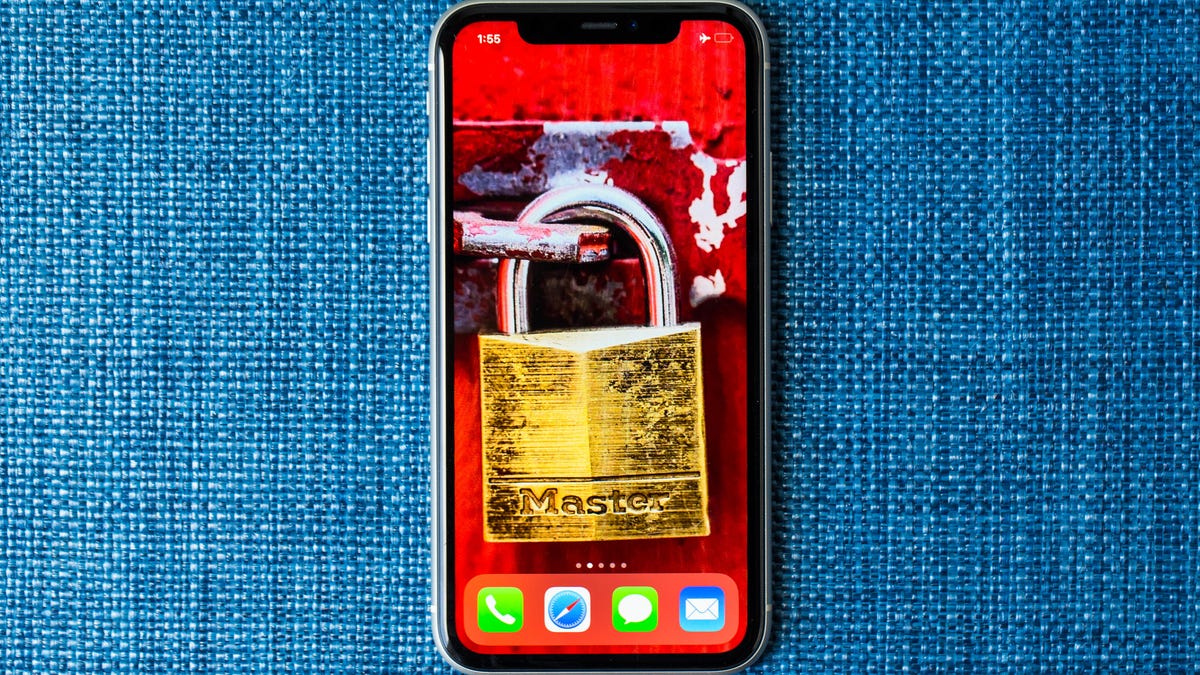iOS 14 just made your iPhone more private and secure: 3 things that changed
Apple has added some pretty stringent privacy controls to your iPhone and iPad. We'll tell you what you need to know.

Get to know the new data privacy features in iOS 14 for iPhone.
Apple has never been shy about beating its own drum when it comes to data protection tools and user privacy. With iOS 14, Apple is giving iPhone and iPad owners even more power over their data, ranging from better location options to tracking controls that require an app to be more transparent about the data it collects about you, and how the information is used.
Read more: iPhone 12 launch date: Apple's virtual event for its expected 5G smartphone is Oct. 13
There's even a new tool built into iOS 14 and iPadOS 14 that will help you catch an app snooping on your camera or microphone, and gone are the days of letting every app access your entire photo library.
Below I'll walk you through the key new privacy features and how to use them.
You no longer have to give apps your exact location
Up until iOS 14, when you approved an app's location request you were allowing it to see exactly where you were. But most apps will work just fine with your general location.
Location requests from websites in Safari are a prime example. Usually, it's some sort of retail business that makes the request so it can find stores near you. Instead of giving the site your address, providing it with your approximate whereabouts will still make it possible to find nearby stores, but you're not giving up private info.
Forget giving random apps your home address.
The toggle in the new location request prompt is subtle, but it makes a big difference. In the top-left corner of the map overview is a button that has the label Precise: On. Tap it to switch it off, and you'll immediately see the map zoom out, representing the general area of your current location. That area is what the particular app will have access to.
If you change your mind about the setting at some point in the future, you can go into the Settings on your iPhone, then Privacy > Location Services and then select the app(s) you want to adjust whether or not they have access to your precise location.
Each app gets its own curated photo album now.
You get to pick which photos an app has access to
This is by far my favorite privacy feature in iOS 14. Instead of either granting an app access to your entire photo library or nothing at all, you can now select specific photos and videos that the app will have access to. In essence, you have the option of creating a handpicked photo library for specific apps. Or, if you'd like, you can grant an app full access to your photo library like it's always had.
The first time an app tries to access your photo library on iOS 14, you'll see a prompt asking if you want to give access to Select Photos or Allow Access to All Photos.
If you choose Select Photos, you'll be asked to pick photos in your library. The next time that same app wants to access your photos, you'll be asked if you want to add more to its own specific library or leave it alone.
It's a bit of extra work, but for those who are careful about which apps have access to their photos and videos, it's a fantastic improvement on the old all-or-nothing approach.
At any time, you can go to Settings > Privacy > Photos to tweak your settings for individual apps.
That orange dot above the signal bars? That means the microphone is being used.
Know when your microphone and camera are in use
We've all heard the speculation that apps like Facebook or Instagram are accessing our phone's microphones to listen to our conversations and then show us ads based on what they hear. CNET's testing didn't find that to be happening, but the theory is still out there.
Control Center can tell you exactly which app was accessing your mic or camera.
With a new feature in iOS 14, you'll know whenever an app is accessing your microphone or camera. There's a new indicator that's shown just above the iPhone's signal meter. An orange dot tells you when an app is currently accessing your microphone, while a green dot indicates an app is accessing your camera.
If you see either color of dot, even if it shows up for a second and quickly disappears, open Control Center to view the name of the app along with a reminder of whether it was using your microphone or camera.
In my testing thus far, I've only seen either dot when I expected to see it -- orange when using the Memos app, and green when the camera is being used. If nothing else, it provides peace of mind that your conversations aren't secretly being listened to.
Privacy features aren't the only thing that Apple added to iOS 14: Widgets on the home screen are now a thing, there are improvements to iMessage group conversations and picture-in-picture makes its iPhone debut. If you haven't installed iOS 14 yet, you can do that right now. And after you master the main features, make sure to check out the hidden features.

